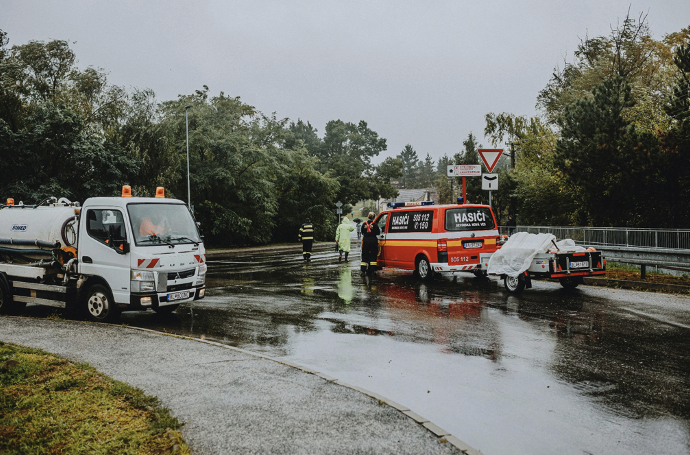
Dump trucks play a crucial role in construction and hauling, but their massive size and heavy loads make them a serious hazard on the road. When an accident occurs, determining liability can be complex, involving multiple parties such as drivers, trucking companies, and even equipment manufacturers.
Understanding how liability works in dump truck accidents is essential for anyone involved—whether you’re a driver, a business owner, or someone who has suffered damages. Who is responsible? What laws apply? How can victims seek compensation? These are critical questions that can impact legal outcomes and financial responsibilities.
In this post, we’ll break down six key things you need to know about liability in dump truck accidents, helping you navigate the legal landscape with confidence and clarity. Let's get started.
Liability in dump truck accidents isn’t always straightforward. While the driver may be the most obvious party at fault, responsibility can extend to the trucking company, the truck’s owner, a maintenance provider, or even a manufacturer if mechanical failure played a role. In some cases, a construction company or municipality may be liable if poor road conditions or improper signage contributed to the crash.
Understanding who is legally responsible requires a thorough investigation of the accident’s circumstances, including driver logs, maintenance records, and any third-party involvement. Identifying all liable parties is crucial in ensuring victims receive fair compensation for damages, medical expenses, and lost wages.
Proving liability in a dump truck accident can be challenging, requiring legal expertise to navigate complex laws, gather evidence, and negotiate with insurance companies. You can engage a lawyer if you are injured in a dump truck accident to assess your case, determine liable parties, and ensure you receive fair compensation for your losses. Attorneys can also work with accident reconstruction experts and medical professionals to build a strong claim. Insurance companies often try to minimize payouts, so having legal representation can help victims avoid accepting lowball settlements. Whether pursuing an insurance claim or a lawsuit, a skilled lawyer increases the chances of a favorable outcome.
Like most motor vehicle accidents, dump truck crashes often stem from negligence. This could include reckless driving, driver fatigue, improper loading, or failure to maintain the vehicle. If a trucking company pressures drivers to meet tight deadlines, leading to excessive hours on the road, they could be held accountable for encouraging unsafe practices.
Similarly, if a truck is overloaded beyond its legal capacity, making it harder to brake or control, both the driver and the company may share responsibility. Proving negligence requires gathering evidence such as accident reports, witness statements, and data from onboard electronic logging devices.
Many dump truck drivers operate under trucking companies, construction firms, or contractors, meaning employer liability can come into play. Under the legal doctrine of "respondeat superior," employers can be held responsible for the actions of their employees if they were acting within the scope of their job at the time of the accident.
However, if the driver was engaged in unauthorized activity, such as running personal errands, the employer may argue against liability. Additionally, some companies attempt to avoid responsibility by classifying drivers as independent contractors rather than employees. In such cases, determining liability depends on contractual agreements and the degree of control the company exercised over the driver’s work.
Dump truck operations must comply with various federal and state regulations designed to enhance safety and prevent accidents. The Federal Motor Carrier Safety Administration (FMCSA) sets strict guidelines on truck maintenance, driver working hours, and weight limits. Violations, such as exceeding these limits or failing to inspect and repair defects, can serve as evidence of negligence in liability claims.
Some states also have specific trucking laws that influence fault determination. If an accident occurs due to regulatory non-compliance, the responsible party—whether the driver, employer, or maintenance provider—may face legal consequences. Keeping up with these laws is essential for both trucking professionals and accident victims seeking justice.
Dump truck accidents often result in severe injuries and property damage, leading to complex insurance claims. Liability coverage varies depending on the driver’s policy, the trucking company’s insurance, and any third-party coverage involved. Some policies have high coverage limits, while others may be insufficient to cover all damages.
Victims may be entitled to compensation for medical bills, lost wages, pain and suffering, and property damage. However, securing full compensation can be challenging, as insurers often dispute claims or attempt to shift blame. Understanding how insurance policies work and knowing your rights can make a significant difference in recovering the financial support you deserve.

Dump truck accidents can have devastating consequences, making it essential to understand liability and how it impacts compensation claims. With multiple parties potentially at fault, including drivers, employers, and even manufacturers, determining responsibility requires thorough investigation and legal expertise. Regulations, negligence, and insurance policies all play a role in shaping the outcome of a case. If you're involved in such an accident, seeking legal guidance can help protect your rights and ensure you receive fair compensation.